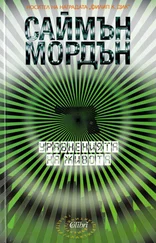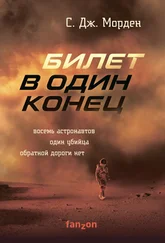The first brief flicker of doubt crossed Mackensie’s serene face. He looked down the table at his advisers and their attendants. Some of them were just kids, who’d grown up knowing nothing but Reconstruction. The middle-aged ones were the generation who’d voted for its institution. Even the old men were two decades his junior.
The sub-launched missiles from the Atlantic reached the eastern seaboard. New York went offline. Miami. Charleston. Some crossed the coast and tracked inland, heading for the industrial cities of the north.
The land-launched intercontinental rockets had ended their boost phase, and were coasting at the edge of space. They’d start to fall in twenty minutes’ time. Every major center of population had been targeted, as had the major military bases. Hawaii was about to succumb. Diego Garcia would be next. Without SkyShield’s protection, they were naked to the oncoming storm.
O’Connell grimaced. “I know it looks like NORAD. But we have to consider the capabilities of who—of what—we’re up against. If Petrovitch’s AI is running a simulated attack, it’s running everything.”
“Well, Frank: you’re my intelligence adviser. I had hoped you of all people would be able to say whether or not the intelligence we are receiving is reliable.”
“Either we use the kill switch, or we wait and see if we die. They’re the only ways.”
“The choice between wiping out our economy or our ability to hit back is not a choice at all.” Mackensie stretched his thin lips out. “I appear to have been badly advised.”
O’Connell started to protest. “Ever since we learned of the New Machine Jihad…”
Mackensie held up his hand. “Enough. You are relieved of your position also.”
After resting his head briefly on the table, O’Connell stood up and walked in a daze to the exit. His deputy licked his lips nervously and scraped his fingers through his hair.
“Does anyone,” asked Mackensie mildly, “have anything constructive to say at this stage, or shall we continue?”
“I think, sir,” said Admiral Arendt, “you should speak with Petrovitch.”
“Do you, Malcolm?”
“Yessir.”
The missiles were edging closer. Two of the sub-launched missiles, one from the east, one from the west, were converging on Colorado.
“And what would be the purpose of that? Why would I waste a moment conversing with the author of our destruction.” Mackensie gestured at the wall screens. “We spent trillions of dollars and millions of man-hours on Project SkyShield, only to have it rendered useless by him and his abomination. We face either nuclear destruction or total economic disaster. Both will leave our great nation a shattered remnant of its former self and our enemies intact. I will not permit that.”
The west coast had gone. The east coast, too. Targets well beyond the continental divide were falling one by one, and still the main attack hadn’t arrived.
The admiral tilted his head slightly as he tried to glean information from the maps, desperately sifting through the layers to sort fact from fabrication. “I’ll be damned,” he said.
“Twenty dollars, if you please, Malcolm. Not like you at all: I appreciate we’re about to meet our maker, but please keep your composure.”
“Why aren’t they targeting DC?” Arendt got to his feet and walked around to the foot of the table. He pointed up at the map with all its lines and markers. “We should have been hit by now. Decapitation strike.”
The watch officer eyed the telephone on his desk, then picked it up. “Petrovitch?” he hissed. “Why aren’t we dead yet?”
“Because if a missile had struck you and you were all still alive, you’d know for certain, wouldn’t you? Even Mackensie couldn’t convince himself you were still under attack. So we thought we’d string this out as long as possible and make you sweat. Not nice, is it, taking away a person’s ability to tell what’s real?”
“As one human being to another, I’m begging you to end this.”
“You’re convinced, then? That none of this is actually happening?”
“Yes. I’m convinced.”
“Then do something to stop Mackensie giving me the complete launch codes. We’ve got most of it: Michael might be able to guess the rest, but it’ll take him a while. Much easier to let your president hand control of your nuclear deterrent to me on a plate. Much more ironic, too.”
“What can I do? I’m just… just a cog.”
“So were Stanislav Petrov and Vasili Arkhipov, but they were the right people in the right place at the right time, and they stopped a third World War. What’s your name, kamerad ?”
“Joshua Meldon Junior, sir.”
“You can call me Sam, Joshua. I like you. Why don’t you turn around and take a look at what’s happening behind you.”
Arendt was still standing under the screens showing the virtual destruction of his country, arguing that he was right, and that to speak the last two characters of the launch code would be a disaster. The depleted audience was with him: the Secretary of State, the Chief of Staff, the Deputy Security Adviser and the other two deputies, all willing the president to change his mind.
The admiral’s case was plain. “The White House is a primary target on every conceivable attack pattern of a foreign power. We have not been hit—yet—and neither has any target within a hundred miles. Mister President, an atom bomb in Virginia would rattle the windows in the Oval Office. There are no independently verifiable signs that we have been attacked because we have not actually been attacked.”
Mackensie looked above Arendt’s head, seeking both clarity and certainty. He watched the missile tracks close in on NORAD’s mountain fastness.
“I am the President of the United States of America and Commander-in-Chief of her armed forces. The reason I am in this great office of state, after long years of faithful service to this nation and her peoples, is to be here at this time and this place, to take this decision. When all others fall by the wayside and show themselves unworthy of the responsibilities handed to them by Almighty God, I will not falter. I will set my face like flint in the face of my many adversities and remain faithful to the very end.” Mackensie picked up the gold codes and looked to the screen that held the image of the ever-patient airforce officer, waiting for the complete sequence.
“Sir?” said Joshua Meldon Junior into the sudden silence. “My brother works for the USGS.”
“That’s nice, son, but not now.”
“He’s in Colorado. They have seismometers, sir. And I can verify it’s really him.”
Arendt gestured to Meldon to make the call.
“Niner Zulu,” said Mackensie.
“The launch codes have been authenticated,” said the man at NORAD and saluted crisply. “It was an honor serving under you, sir.”
“Would that others did their duty as diligently as you, son.” The screen went blank, and was replaced by a list of the counterstrike assets as they were activated. Mackensie folded his arms, as if he had known this day would come and he had spent a lifetime preparing himself for it. “Thank you, gentlemen. There is nothing else left to do, and you are all dismissed.”
None of them moved.
Meldon adjusted his mouth mic. “I need to speak to Doctor Jerry Meldon. I don’t care if he’s in a meeting: this is the White House and this is urgent.” While he waited, he picked up Petrovitch’s phone again.
“You’ll go far,” said Petrovitch.
“I’m too late, though, aren’t I?”
“Hell yeah. All your base are belong to us.”
“What are you going to do with them? The codes, I mean?”
“Enjoy them while I’ve got them. They go out of date at midnight, so they have a short shelf-life. I thought I might post them on some public message boards, see if they go viral.”
Читать дальше

![Саймон Морден - Билет в никуда [litres]](/books/388091/sajmon-morden-bilet-v-nikuda-litres-thumb.webp)
![Саймон Морден - Билет в один конец [litres]](/books/395533/sajmon-morden-bilet-v-odin-konec-litres-thumb.webp)









